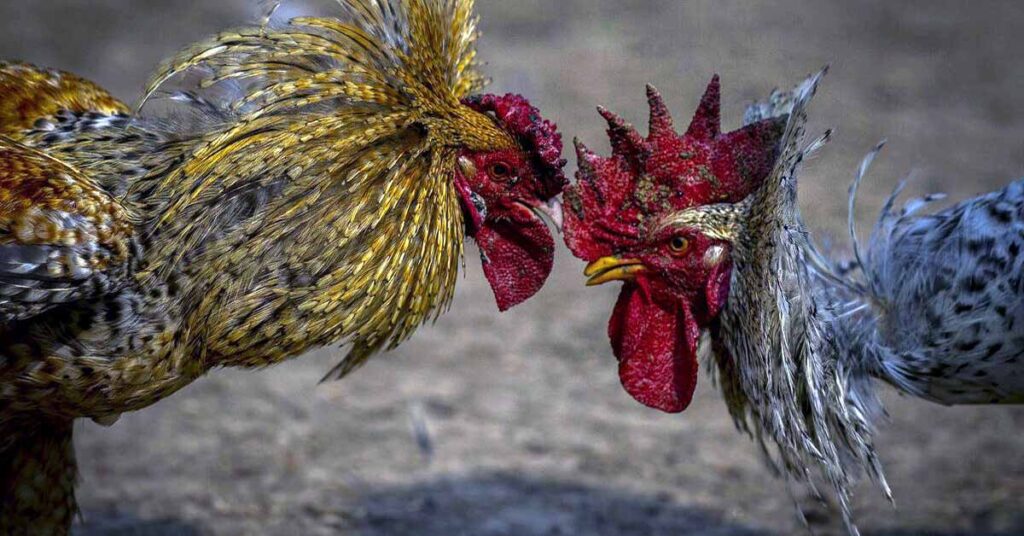Gamefowl Hardening: The Key to Strong and Competitive Gamefowls
September 22, 2023
Conclusion
Gamefowl hardening is an essential aspect of cockfighting, ensuring that gamefowls are physically and mentally prepared for the challenges of the arena. It is a multifaceted process that encompasses proper nutrition, exercise, socialization, and mental conditioning. Breeders and enthusiasts who prioritize gamefowl hardening increase their birds’ chances of success in the highly competitive world of cockfighting.
However, it’s important to remember that cockfighting is a controversial and often illegal activity in many places. Ethical considerations surrounding the treatment of animals must always be taken into account. Breeders and enthusiasts should prioritize the welfare of their gamefowls and adhere to local laws and regulations.
In conclusion, while gamefowl hardening is essential for competitive gamefowls, it must be carried out with a sense of responsibility and ethical awareness, ensuring that the well-being of the birds is always a top priority.

Gamefowl breeding and cockfighting have been deeply ingrained in various cultures around the world for centuries. To excel in this highly competitive sport, breeders and enthusiasts must focus on raising strong and competitive gamefowls. One essential aspect of achieving this goal is gamefowl hardening. Hardening refers to the process of conditioning gamefowls physically, mentally, and emotionally, making them tougher, more resilient, and better equipped for the rigors of the cockfighting arena. In this article, we’ll explore the importance of gamefowl hardening and provide some valuable insights into the methods and practices involved.
Understanding Gamefowl Hardening
Gamefowl hardening is not a one-size-fits-all concept; it encompasses a multifaceted approach that requires dedication, knowledge, and patience. The primary objective of hardening is to prepare gamefowls to withstand the physical demands of a cockfight, as well as to develop their mental acuity for strategic combat. Here are some key aspects of gamefowl hardening:
Physical Conditioning:
- Diet: Proper nutrition is essential to build strong and resilient gamefowls. High-quality feeds rich in essential nutrients, vitamins, and minerals are vital for muscle development and overall health.
- Exercise: Regular exercise helps build muscle, stamina, and agility. Free-ranging or daily walks are excellent ways to keep gamefowls physically fit.
- Weight Management: Maintaining the right weight is crucial. Overweight or underweight gamefowls may struggle during a match. Consult with a veterinarian or experienced breeder for guidance.
Mental Toughness:
- Socialization: Gamefowls need to interact with other birds to develop social skills and confidence. Isolation can lead to anxiety and aggression.
- Exposure: Expose gamefowls to various environmental factors, such as different terrains and weather conditions, to toughen their adaptability.
- Mock Fights: Training sessions that mimic real fights can help gamefowls develop combat strategies and mental resilience.
Emotional Balance:
- Stress Management: Minimize stressors in the birds’ environment, as chronic stress can weaken their immune system and overall health.
- Routine: Establish a daily routine to provide a sense of security and predictability for the gamefowls.
Gamefowl Health:
- Regular Check-Ups: Schedule regular veterinary check-ups to ensure that gamefowls are free from diseases and parasites.
- Vaccinations: Follow a vaccination schedule recommended by experts to prevent common avian diseases.
Selective Breeding:
- Breeding for Toughness: Over generations, breed for gamefowls with a history of endurance and competitiveness to pass on these traits.
Rest and Recovery:
- Gamefowls also need ample rest and recovery time to avoid overtraining and injuries. A well-planned training schedule that includes rest days is crucial.
